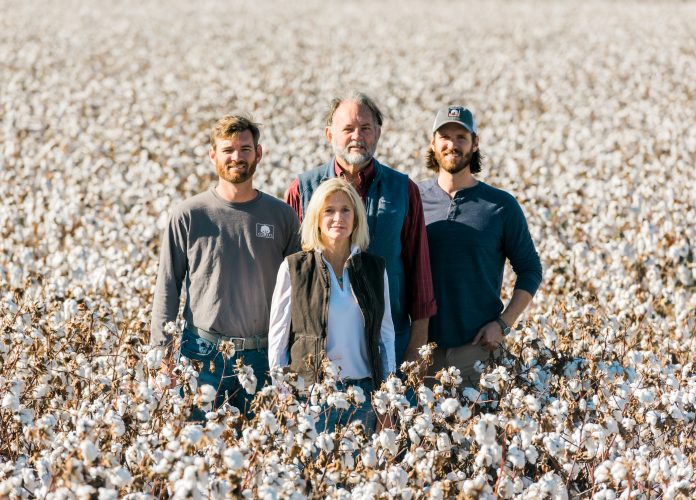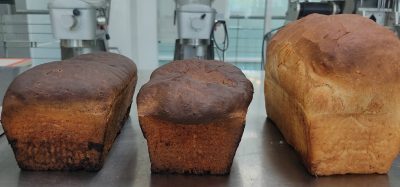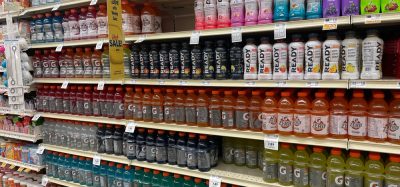What does sustainability really mean?
- Like
- Digg
- Del
- Tumblr
- VKontakte
- Buffer
- Love This
- Odnoklassniki
- Meneame
- Blogger
- Amazon
- Yahoo Mail
- Gmail
- AOL
- Newsvine
- HackerNews
- Evernote
- MySpace
- Mail.ru
- Viadeo
- Line
- Comments
- Yummly
- SMS
- Viber
- Telegram
- Subscribe
- Skype
- Facebook Messenger
- Kakao
- LiveJournal
- Yammer
- Edgar
- Fintel
- Mix
- Instapaper
- Copy Link
Posted: 6 June 2023 | Joshua Minchin (New Food) | No comments yet
Joshua Minchin asks what sustainability really means to farmers across the world after some fascinating conversations in a recent episode of Food to Go.
In a recent episode of Food to Go, the New Food team sought to address the very question posed above. Sustainability is one of the most important words in the food and beverage sector at present, probably sitting just behind safety as crucial to long term success. Consumers expect their food to be safe and sustainable too.
Providing for the next generation
What does operating sustainably mean? Often with conceptual words it’s difficult to grasp tangibility, it means different things to different people depending on all sorts, from environment to values to the markets they operate in. And it can be easy to hide behind the scale and complexity. But the fact is, it is complex and when it comes to sustainable agriculture – no one has all the answers. Everyone is on a continual journey to understand how to produce more efficiently and safely and in a way that minimises impact on the environment.
In the US, 96 percent of farms are family run, so there’s an in-built responsibility amongst these farmers to strive for a more sustainable future for everyone; promoting sustainable farming methods is core to operations if the land is to be passed on to the next generation
The Almond Board of California (ABC), which supports growers in the state where 80 percent of almonds are grown, discussed this on a recent episode of Food to Go.
“While it’s [being sustainable] an expectation, it’s a responsibility we take very seriously because over 90 percent of California almond farms are family-run farms,” Harbinder Maan, Associate Director Trade Marketing and Stewardship at The Almond Board of California, told Food to Go.
“Our farmers are genuinely stewards of the land, because they want to be able to pass this land onto the next generation. They are producing in a way that’s going to minimise the impact on the environment.”
It’s a sentiment echoed by the Hardwicks – two brothers whose family farm in Louisiana grows cotton and soy beans amongst other commodities has displayed real innovation and become a local leader when it comes to conservation and precision agriculture.
“We didn’t start farming sustainably because of the customer. We’re doing it because it’s our farm, it’s our family, it’s our livelihood. If we can be more sustainable, we’ll make sure that the farm is still here for another generation,” said Mead Hardwick, a partner at the Hardwick Planting Co.
So, when we ask what sustainability really means, it’s probably at its most concrete on those family farms, not in grand corporate strategies. For many, producing sustainably or not could be the difference between having arable land for your children and not. But while individual efforts are key, there is a much bigger picture to consider and there’s power in the collective. Sustainability in agriculture is about responsible production that minimises unwanted impacts on people and planet. Farmers, whilst playing a crucial role as stewards of the land, are only one part of the puzzle. Broader strategy setting and agreed frameworks are key, as are practical goals, and continuously striving for improvement. Outside of the farmers, this requires collaboration and participation from governments, industry bodies and innovators to name a few.


The Hardwick family are passionate about caring for their land in Northern Louisiana
Changing perceptions
The other key takeaway from this episode of Food to Go was the shift in perception that is underway when it comes to discussions on farmers and attitudes to sustainability. Often, family-owned farms are thought of as traditional, unable and unwilling to change and adopt new methods which could see production and planetary health improved. Yet this could not be further from the truth.
As David Green, Executive Director at the US Sustainability Alliance pointed out (in his experience at least), farmers want to produce in a more sustainable way and will adopt technology which allows them to do so. Not only can precision agriculture ensure production is as sustainable as possible and fertiliser usage is as efficient as possible, but it can also improve yields and drive down production costs. As Green points out, adopting technology just makes good business sense.
“I speak as a farmer that farmed in Ireland for 10 years. Farmers want to produce better, they want to produce more. That’s their livelihood. They will use whatever technology or process that comes along. If it works, if it’s safe, they try and test it. And if it works, then it’ll be used.”
That concept of embracing change, whether that be in technology or in approach, was again echoed by Harbinder Maan of Almond Board of California, who explained just how passionate California’s almond farmers are about sustainable production.
“When you’re sourcing almonds from California, you can be sure that they’re grown responsibly and we are proud of that. Just as an example, the industry has invested in decades of production research, which forms the basis of a self-assessment voluntary program called the California Almond Stewardship Platform (CASP).
“CASP is composed of a host of resources for the growers including research, almond-based tools and self-assessment data. The California almond community has worked with The Sustainable Agriculture Initiative Platform and its farm sustainability assessment to benchmark the programme – and we achieved gold, which is the highest level of equivalency.”
A little less conversation…
And a little more action, please, is what many consumers (and food producers alike) have been saying for some time now. It’s something that Harbinder Maan was keen to stress in her interview on Food to Go.
“The industry is committed to achieving. We set goals, just like lots of companies are setting goals. For example, we set a goal to achieve zero waste in our orchards by 2025 by putting everything we grow to good use,” she told Food to Go.
“We’re currently partnering with food and drink development organisation Mattson to look at what else you can do with almond hulls and shells. We can convert the almond hulls into a food ingredient in its own right, but there are other protypes we’re working on too.
“For example, there’s a nutrition bar with 15 percent of almond hulls added. You can also roast the almond hulls and grind them to brew a tea, or use them to replace 20 percent of coffee beans in a traditional coffee. You can even create beer using hulls to replace the hops in the brewing process.”
To learn more about sustainable agriculture and hear more expert analysis from Harbinder Maan, the Hardwicks, and David Green, make sure you listen to the Food to Go Sustainable Agriculture special.
Related topics
Environment, Food Safety, Sustainability, Technology & Innovation, The consumer
Related organisations
Hardwick Plantation Co, The Almond Board of California (ABC), US Sustainability Alliance (USSA)
Related regions
Related people
David Green, Harbinder Maan, Marshall Hardwick, Mead Hardwick









